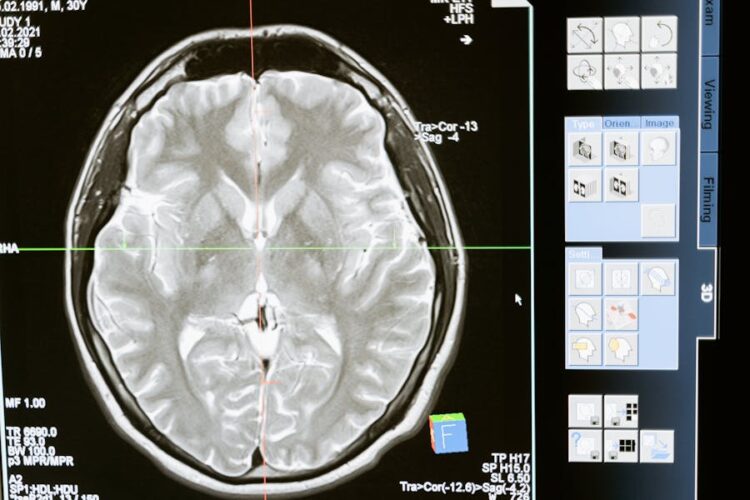Getting into an accident is no laughing matter. While some people come out unscathed or with mild injuries, many suffer debilitating conditions or fatalities.
One of the worst injuries you may receive is a traumatic brain injury (TBI). Any head injury, major or minor, could affect the rest of your body. In some cases, it could also cause death. In fact, TBI was the cause of over 69,000 deaths in the U.S. in 2021. (1)
If your head got hurt in an accident, you must not just settle for getting medical care. You may be eligible for compensation for brain injury. This piece will discuss how to seek it to receive money that covers your expenses and addresses your pain.
Determine Liability
The first thing you must do is establish who caused the accident. Liability is the legal responsibility for one’s actions or omissions. So, if the liable entity fails to fulfill it, they’ll leave themselves vulnerable to a lawsuit for the resulting damages.
Determining who’s at fault will help you take the next steps in seeking fair compensation for your injury. Here are some common scenarios and who could be liable for the accident:
- Car accidents: Another driver could be held liable if they cause a collision due to speeding, drunk driving, or reckless driving.
- Medical malpractice: Getting a brain injury caused by a doctor’s negligence, like improper treatment or surgical errors, could make the doctor the responsible party.
- Product liability: If a defective product hurts you, the manufacturer could be held liable.
A reputable personal injury attorney is invaluable when seeking compensation for brain injuries as they can determine the party at fault. Their skills and assistance are especially beneficial when multiple individuals are on the scene.
Document Your Injuries and Medical Costs
After an accident, you should thoroughly document every scratch and bruise on your body. This step is more challenging with closed brain injuries, as some instances of pain aren’t visible to the naked eye.
Medical experts and the authorities on the scene can lend you a hand here. With your lawyer’s help, gather all relevant documents, such as on-scene photos, X-rays, and medical records. These materials can prove the reality of your situation and that your injury was caused by the accident.
Detail your emotional distress as well. You can do this by having family and friends testify for you. Keeping a journal recording your loss of enjoyment post-accident also helps. Medical treatments like muscle relaxers and antidepressants are valid, too.
Document the expenses related to your brain injury too. These include:
- Medical bills
- Lost income
- Loss of future earning capacity
- Non-economic damages
- Future damages
Gather every relevant invoice, pay stub, or record. The more documentation you have, the more likely you are to file and claim compensation for brain injury successfully.
Preserve Evidence From the Scene
Preserving as much evidence as possible from the accident scene is crucial. The courts and insurers will refer to these documents.
This task may be difficult if you’re recovering from a TBI. So, ask someone you trust to take photos and notes regarding the area’s conditions at the time of the accident. Witness statements are also excellent pieces of evidence. Try to get their contact information so they can help you prove who’s liable for the incident.
If law authorities responded to the scene, request a copy of the police report. Nearby security cameras may also have captured the accident. You and your legal team must act quickly to retrieve the footage before it’s deleted. But note: sometimes this type of evidence can make or break your case.
Studies show that CCTVs have shortcomings. For example, owners may be unable to access footage, video enhancement may be unsuccessful, or prosecutors may cherry-pick snippets. (2)
File a Claim With the At-Fault Entity’s Insurance
After hiring a lawyer and gathering the documents and evidence, the next step is filing a claim. It must be with the responsible party’s insurance company. For instance, if you were hit by a car, you’d file a claim with the driver’s auto insurance provider.
While the insurance companies will investigate the accident, expect them to be skeptical. They’ll typically minimize severe brain injuries or offer low settlement amounts. These companies often do this, especially when they think the plaintiff, you, in this case, will accept quickly.
Practice caution when speaking with insurers, and avoid signing anything without legal advice. Your personal injury lawyer can communicate with the insurance company to protect your brain injury claim.
Prepare for a Legal Battle or a Settlement
If you’re lucky, your personal injury case reaches a fair settlement before going to trial. However, that’s not always the norm, so you should prepare for a potential legal battle.
Some insurance companies may offer fair compensation for brain injury when they know you’ll take the case to court. Your lawyer will negotiate and aim for the highest possible settlement.
Your case may go to court if those negotiations fail. This is where the legal process called discovery takes place. Both sides will share evidence, take depositions, and prepare for trial. It’s usually a time-consuming process, but the potential compensatory damages may be worth it for severe injuries.
Act Within the Statute of Limitations
The earlier you act, the likelier you are to succeed. Every state, country, and case has a time limit for filing personal injury claims, which is called the statute of limitations. Some range from one to several years, depending on your location. If you wait too long to file a claim, no matter how valid your case is, you could lose your right to compensation.
However, some exceptions exist. Your brain injury symptoms may not have surfaced immediately, or you were a minor at the time of the accident. For the latter, the statute of limitations generally begins when you turn 18. The time limit may also be paused, such as when the plaintiff becomes mentally impaired or the defendant leaves the state. (3)
Still, the sooner you act, the better. You’ll have fresh evidence, and your brain injury case will be much stronger.
Final Thoughts
Don’t let time and circumstance hinder you from seeking compensation for brain injury. As soon as you leave an accident and feel injury symptoms, partner with a legal team focusing on personal injuries. They’ll provide expert opinions and help you go through your case.
With their guidance and knowledge, you may reach a fair settlement without going to court. Whatever your game plan is, don’t settle for less than you deserve. Protect your rights and hold the responsible person or party accountable.
References
- “Facts About TBI”, Source: https://www.cdc.gov/traumatic-brain-injury/data-research/facts-stats/index.html
- “The camera never lies? Our research found CCTV isn’t always dependable when it comes to murder investigations”, Source: https://theconversation.com/the-camera-never-lies-our-research-found-cctv-isnt-always-dependable-when-it-comes-to-murder-investigations-199828
- “Is There a Time Limit to File a Lawsuit? What Are Statutes of Limitations?”, Source: https://www.findlaw.com/litigation/filing-a-lawsuit/is-there-a-time-limit-to-file-a-lawsuit-what-are-statutes-of.html










